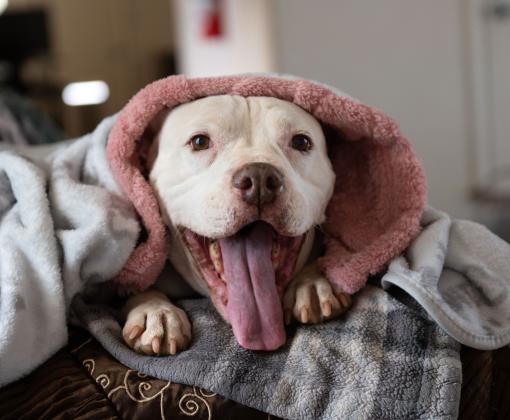
Bird Health: Signs of a Sick Bird, Avian Vet Care
Regular checkups, preventative medicine, and emergency preparedness are important to keep pet birds healthy and happy. Here are some general guidelines about bird health, symptoms of a sick bird, and avian vet care for birds.
How do I know if my bird is healthy?
Signs of a healthy bird include:
- Bright eyes
- Clean and shiny feathers
- A good appetite
- Lots of energy
Healthy birds are alert to their surroundings, upright, balanced, and quite active. Moreover, the bird’s droppings should be composed of a black or dark green solid, a clear part, and a creamy white part. Healthy birds eat a lot and make a lot of droppings!
Birds should maintain an appropriate weight for their species. You should be able to feel your bird’s keel, but it should not be sharp and sunken or bulging on the sides.
What are symptoms of a sick bird?
First and foremost, you must remember that by the time a bird shows any blatant signs of illness, that illness has usually become quite advanced. Birds are naturally inclined to hide any signs of sickness or weakness. So it is important to keep a close eye on your bird's behavior and appearance, and seek veterinary care at the very first sign of a problem.
Signs of illness in birds include:

See how your community is doing
- A decline in appetite and/or water intake
- Increased aggression toward humans or cage mates
- A sleepy or lethargic appearance
- Huddling or sitting low on the perch or on the cage floor
- Fluffed feathers
- Weight loss (signaled by a prominent keel or breastbone)
- Open-mouth breathing or difficulty with breathing
- Any discharge from the eyes or nose
Also, watch for any change in the bird’s normal droppings — e.g., an increase or decrease in the amount, dryness, loose construction, a color change, undigested food, or a change in the ratio of feces to urates. Remember, droppings are individual to each bird, so what's normal for your bird might not be normal for another.
Avian vet care
If your bird shows any signs of illness, a visit to the veterinarian is essential. Try to establish yourself with an avian veterinarian in your area before an emergency occurs. Because birds are so unique, they do better in the hands of a specialist familiar with their treatment and care.
The best-case scenario is to find a board-certified avian vet. If a board-certified avian vet is not available near you, try to find someone who is at least experienced with birds. Most veterinarians who regularly practice avian medicine — whether they are board-certified or not — are members of the Association of Avian Veterinarians. You can go to the association's website to search for a vet near you.
If you can't find an avian vet in your immediate area, the best thing to do is find the closest one — even if they're several hours away — and make the trek to have the vet do a baseline exam on your bird. Once the avian vet has examined your bird, they can legally advise and collaborate with other vets closer to you to care for your bird. That way, you can have the option for local vet care if needed. But if you plan to go this route, make sure there are vets in your area who will accept birds as patients and who will collaborate with your long-distance avian vet.
Whatever veterinary solution you come up with, it's always a good idea to take your bird to the vet for a baseline exam, and then follow your vet’s recommendations for wellness visits and diagnostic testing.
Bird first aid and emergency preparedness
If you think your bird is sick but can't get to the veterinarian right away, keep the bird warm (a room temperature of at least 85 degrees Fahrenheit). An ordinary heating pad wrapped around the cage is a good way to maintain temperature. Cover the cage, and protect it from drafts.
Never give a bird medication without consulting with a veterinarian first. Many human or other animal medications are harmful to birds. You can waste valuable time trying to treat your bird yourself — and possibly do more harm than good. So it's best to let your veterinarian prescribe the most appropriate and safest treatment.
Unfortunately, first aid classes for birds don't exist yet, but there are resources that give instructions about what you need in your first aid kit and explain how to perform basic first aid on a bird. The book First Aid for Birds: An Owner’s Guide to a Happy, Healthy Pet by Julie Rach and Gary Gallerstein, DVM, is a user-friendly resource.
There's also an article called The Bird Scout Motto in The Bird Owner’s Manual on making a disaster preparedness kit. It is indispensable for learning how to be prepared for an emergency, such as a hurricane, tornado, fire, flood, or other scenario where you would have to get your birds out fast and might be in limbo for several days. Finally, ready.gov is a great resource for more information about disaster preparation for your home and pets.
